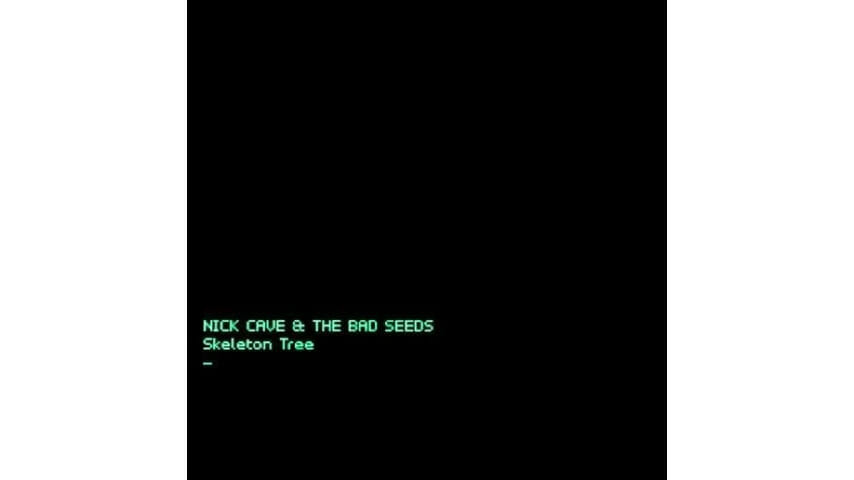Nick Cave & The Bad Seeds: Skeleton Tree

Cross-pollination between the arts is nothing new. Yet 2016 has been the year when prolific artists explicitly experimented with form, with the likes of Beyoncé and Frank Ocean releasing new music alongside gripping visual albums and films (Lemonade and Endless, respectively). The Australian auteur and reigning prince of darkness, Nick Cave, also opted for a visual aspect accompanying the release of his 16th studio album with his band the Bad Seeds, Skeleton Tree. The album’s Friday release was coupled with a series of global screenings the night before, of a 3D black-and-white film, One More Time With Feeling.
The film is hardly a behind-the-scenes peek to satiate Cave die-hards still begging for a possible Birthday Party reunion. Nor is it a visual play-by-play of Skeleton Tree. Instead, it’s an act of survival. In 2015, Cave’s 15-year-old son Arthur died following a fall from a cliff in Brighton, United Kingdom. Cave and Susie Bick, his wife, lay their suffering bare in the visceral documentary, which catalogues their disbelief, ongoing attempts to cope, and Cave’s own ruminations of how it affected everyone and everything around him. All the while, Cave channeled his grief into new music that was macabre, even by his own standards. “Nick deals with everything in life by working; if his heart is broken he can turn it into a song, everything is a grist for the mill,” the film’s director, Andrew Dominik, told journalists at the 2016 Venice Film Festival.
The magnitude of this tragedy casts a long shadow over Skeleton Tree. How can it not? Up front (note the stark album cover, leaving little to the imagination), Cave makes it plain to listeners that he’s still mourning, and may be indefinitely. “With my voice, I am calling you,” he cries behind the drones of album opener “Jesus Alone” (a strangely prescient farewell, given that the song was written back in 2014). During the avant-garde jazz-laced “Anthrocene,” he shares something we all know, wish we didn’t, and is certainly worth repeating: “All the things we love, we lose.”
Cave is “an epic storyteller of Grimm proportions,” as NME’s Jack Barron put it in the ‘80s. Since his days in The Boys Next Door and the Birthday Party, and throughout his many years with the Bad Seeds, Cave has preferred to obliquely express himself through the perspectives of others, both real and imagined. On Skeleton Tree, he continues to channel his experiences through the lens of others. Cave takes his voice down to a pained growl on the funereal “Girl in Amber” as he memorializes a woman forever suspended in sap, and then imagines moving in tandem with a loved one, their lives moving forward in parallel lines, in the dreary and devastating “Magneto.”
-

-

-

-

-

-

-

-

-

-

-

-

-

-

-

-

-

-

-

-

-

-

-

-

-

-

-

-

-

-

-

-

-

-

-

-

-

-

-

-








































